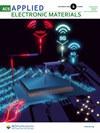关于全球临床医生一线治疗转移性非小细胞肺癌实践的简要报告
IF 4.3
3区 材料科学
Q1 ENGINEERING, ELECTRICAL & ELECTRONIC
引用次数: 0
摘要
在转移性 NSCLC(mNSCLC)的动态管理中,有几种前线选择和用于知情决策的新一代测序(NGS)的整合,尽管取得了进步,但障碍依然存在。这包括临床试验招募方面的挑战。为了深入了解全球临床医生的做法,我们就他们对 mNSCLC 患者的检测和管理方法进行了一项调查。调查于 2023 年 7 月 12 日至 8 月 20 日进行,采用了多项选择题和定性研究问题,并使用了李克特量表以获得全面的见解。共有127人参与了调查,其中72%隶属于学术医疗系统,55%在美国执业。在检测实践方面,93% 的人始终为非鳞癌组织学检测订购 NGS,54% 的人为鳞癌组织学检测订购 NGS。28%的受访者常规同时订购组织活检和液体活检,39%的受访者称仅在特定病例中同时订购两种检测平台。受访者认为,组织不足和缺乏基础设施等后勤障碍是分子检测最常见的障碍(76%),其次是报销难题(56%)和对周转时间延迟的担忧(50%)。虽然大多数受访者对解读 NGS 结果有信心,但也有 22% 的受访者缺乏信心。关于治疗决策,72% 的受访者倾向于等待分子检测结果后再开始系统治疗。在 mNSCLC 一线治疗中,不到 50% 的受访者会将患者例行转介到临床试验中。对于PD-L1表达水平较高的患者,大多数肿瘤学家倾向于使用pembrolizumab单药治疗。对于PD-L1表达水平较低的疾病,铂类双药化疗方案联合pembrolizumab更受青睐。对于 PD-L1 阴性表达的病例,铂类双联化疗方案联合 pembrolizumab 更受青睐。影响肿瘤学家首选免疫检查点抑制剂(ICI)的关键因素包括:使用一种 ICI 的经验、国家指南中的首选地位、是否有随访时间较长的试验数据以及药物成本考虑。尽管这项研究表明,在治疗 mNSCLC 时订购 NGS 的意识和采用率有所提高,但它也强调了各种障碍的持续存在,必须解决这些障碍才能提高确诊为 mNSCLC 患者的治疗质量。本文章由计算机程序翻译,如有差异,请以英文原文为准。
Brief Report on Global Clinician Practices in the First-Line Management of Metastatic Non-Small Cell Lung Cancer
Introduction
In the dynamic landscape of metastatic NSCLC (mNSCLC) management, marked by several frontline options and the integration of next generation sequencing (NGS) for informed decision-making, barriers persist despite advancements. This includes challenges in clinical trial recruitment. To gain global insights into clinicians’ practices, we conducted a survey on their testing and management approaches for patients with mNSCLC.
Methods
The survey, conducted from July 12 to August 20, 2023, utilized multiple-choice questions and qualitative research questions, employing the Likert Scale for comprehensive insights.
Results
A total of 127 individuals responded, with 72% affiliated with academic health systems, and 55% practicing in the USA. Regarding testing practices, 93% consistently ordered NGS for non-squamous histology, while 54% did so for squamous cell histology. Concurrent tissue and liquid biopsies were routinely ordered by 28%, while 39% reported ordering both testing platforms concurrently for select cases only. Respondents cited logistical barriers, such as insufficient tissue and lack of infrastructure, as the most common hindrance to molecular testing (76%), followed by reimbursement challenges (56%) and concerns about delayed turnaround time (50%). While most respondents were confident in interpreting NGS results, 22% lacked confidence. Concerning treatment decisions, 72% preferred awaiting molecular testing results before initiating systemic therapy. Less than 50% routinely referred patients for clinical trials in the frontline setting for mNSCLC. For patients with disease expressing high PD-L1 levels, most oncologists preferred pembrolizumab monotherapy. For disease with low PD-L1 expression, a platinum doublet chemotherapy regimen combined with pembrolizumab was favored. In disease cases with negative PD-L1 expression, a platinum doublet chemotherapy regimen with pembrolizumab was preferred. Key factors influencing oncologists' preferred immune checkpoint inhibitor (ICI) included experience with one ICI over another, preferred status per national guidelines, availability of trial data with a significant follow-up period, and consideration of drug cost.
Conclusion
Although this study demonstrates an improved awareness and adoption of ordering NGS for the management of mNSCLC, it underscores the persistence of various barriers that must be addressed to improve upon the quality of care for patients diagnosed with mNSCLC.
求助全文
通过发布文献求助,成功后即可免费获取论文全文。
去求助

 求助内容:
求助内容: 应助结果提醒方式:
应助结果提醒方式:


